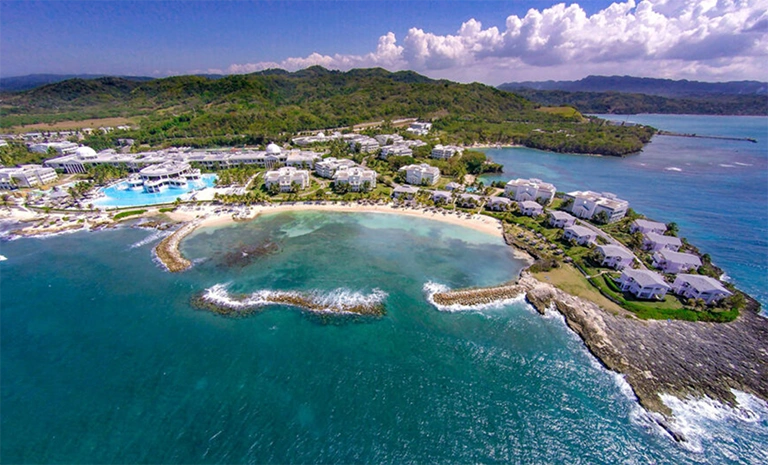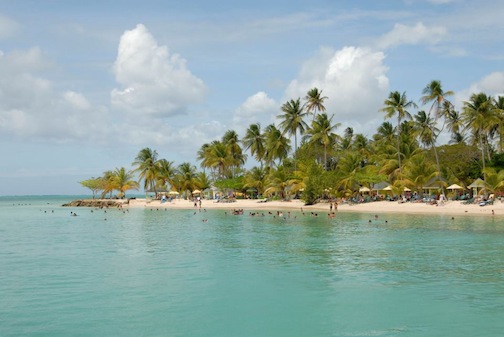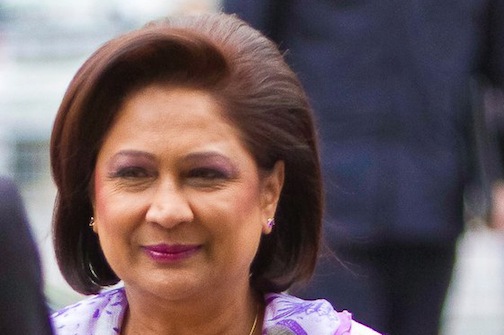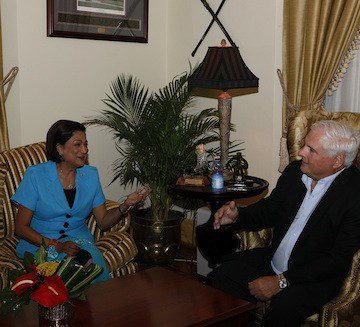Op-Ed: Trinidad Falls Short of Leadership Potential on CCJ Decision
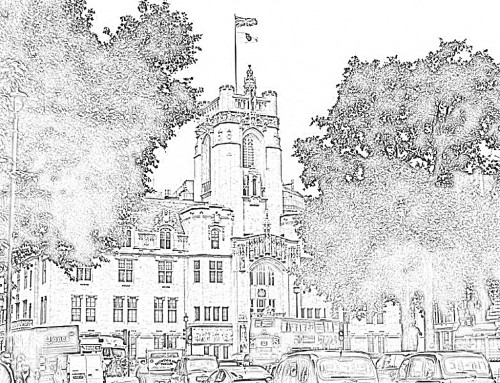
By Michael W Edghill
Op-Ed Contributor
This week, Trinidad and Tobago Prime Minister Kamla Persad-Bissessar announced that the Partnership government of Trinidad would move forward on a plan to abolish the appellate jurisdiction of the London-based Privy Council.
It was a move that had been widely debated and anticipated ever since the Caribbean Court of Justice was inaugurated in 2005 in Port of Spain.
For the last 7 years, Trinidad has been host to the Caribbean Court of Justice, but did not rely on its authority for criminal, civil, or constitutional matters. It created an awkward dynamic of a nation which sees itself as the leader of the Caribbean yet does not trust the internal institutions of the Caribbean.
In her statement addressing this move, the Prime Minister said that the “knot to the Privy Council had to be cut at some stage” and that the 50-year anniversary of independence is the right time and place.
The problem with the Prime Minister’s decision is that, while the CCJ will now hold original and appellate powers in criminal matters, it will not hold those powers regarding civil or constitutional matters. For those, the Privy Council will remain.
“It’s a classic case of half-a-loaf being better than no bread,” said Opposition Leader, Dr Keith Rowley, speaking of his support for the move, while simultaneously pointing out that it does not go far enough. Trinidad’s government, in this instance, made a hesitant move not befitting a country that wishes to be seen as a leader in the region.
In statements that appeared in the Trinidad Express, former Attorney General John Jeremie pointed out that it is rather difficult, if not impossible, to separate the criminal aspects of appellate jurisdiction from civil or Constitutional aspects because any criminal case might involve the interpretation of constitutional law.
Additionally, he pointed out that the CCJ Agreement that Trinidad’s government signed provided for appellate jurisdiction in civil and criminal matters and that, if you separate the two, Trinidad could be considered in breach of the agreement.
With the possibility of complications in this regard and the possibility that London may not be willing to allow the separation of Privy Council jurisdiction in this way (which has happened in the past), why would the Partnership government of Trinidad pursue such a course?
The government argues that it is being prudent and gradual. It has stated that it was not willing to concede jurisdiction to the CCJ over the last seven years because Trinidad needed to be sure that the structure and execution of justice by the Court was perceived as valid by the global community.
In the same Trinidad Express article, former Attorney General Ramesh Lawrence Maharaj pointed out that the hesitancy of previous governments to hand over civil jurisdiction to the CCJ was the fear that business community and foreign investors would lack confidence to invest in Trinidad in the absence of the Privy Council.
The CCJ, being new and without a track record of interpreting civil law in the region, would leave investors gun-shy for risk of being brought into litigation for which they were unprepared.
The problems with acting based on this belief are two-fold. In the first case, many other nations within the British Commonwealth have effectively ceased appeals to the Privy Council and have not seen the ill effects of declining foreign investment.
Nations thrive or flounder when it comes to direct foreign investment based on myriad factors, including stability of government, stability of society, and an investment-friendly financial climate, among others. Jurisdiction in civil matters moving to the Caribbean Court of Justice would, in itself, not be reason enough to discourage investment in Trinidad and Tobago.
If the societal instability created by narcotics-trafficking gangs has not been a significant detriment to economic growth, then civil jurisdiction being transferred to the CCJ should not halt growth either.
Perhaps more important is what the CCJ debate has highlighted regarding Trinidad. Leading involves risk and bold action based on principles. The government of Trinidad has, in the past, and in this decision, been tepid when acting towards regional integration.
If the fear of the Trinidad government was that the CCJ would fail to be a fully functioning and respectable court, then Trinidad should have been more involved in the court and taken steps to ensure that the actions and rulings of the Caribbean Court are just and righteous.
Trinidad is widely regarded as the economic leader of the Caribbean but as a political leader, the nation has fallen short. If regional integration is truly a goal and not just empty rhetoric, Trinidad is the nation that can act boldly and move the Caribbean towards integration.
Without leadership, Caribbean integration by way of the CCJ or other elements will continue to drift along rudderless.
All signs point towards the potential that Trinidad has as a Caribbean leader. The current government has acted boldly on initiatives regarding economic trade agreements with Panama, Colombia, and others.
But regional and international leadership is about more than just being an economic leader. It requires bold leadership that inspires confidence. Trinidad has this potential. It is simply up to the political leadership to show the way.
Michael W Edghill teaches courses about the Caribbean and US government in Fort Worth, Texas.
Note: the opinions expressed in Caribbean Journal Op-Eds are those of the author and do not necessarily reflect the views of the Caribbean Journal.
